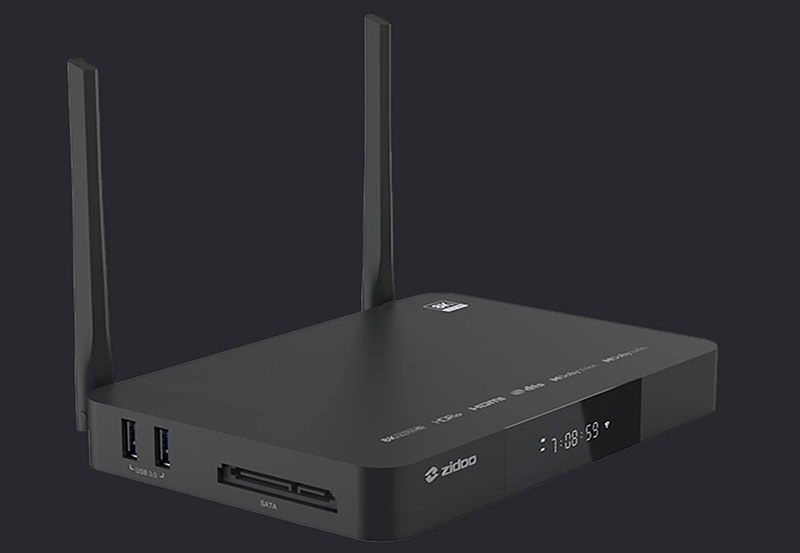With the rise of AV streaming platforms, IPTV has become a formidable force in the realm of entertainment. As IPTV opens the door to a plethora of content, ensuring its security on Linux systems is vital. Not only does it protect your access to High-quality IPTV, but it also fortifies your online privacy. In the following sections, we will explore why a reliable VPN is your best ally in achieving the best IPTV experience on Linux.
Understanding IPTV and Its Vulnerabilities
What is IPTV?
IPTV, or Internet Protocol Television, is a service that delivers television content over the internet instead of traditional terrestrial, satellite, or cable formats. Its allure lies in the access it provides to extensive media libraries, ranging from live TV to on-demand videos.
For many households, IPTV represents the next generation of television entertainment. It’s convenient and often more budget-friendly, offering custom packages that traditional TV providers struggle to match.
Streaming Insight:
Discover premium entertainment with CalmaHub IPTV, offering top-tier channels and VOD at unbeatable prices.
Common Vulnerabilities in IPTV
While IPTV services offer a variety of advantages, they also come with inherent risks and vulnerabilities. The most prevalent issues include unauthorized access to your streaming data and potential data theft. This is particularly concerning as it compromises not only your privacy but also your device’s security.
Despite robust server protocols and encryption on the provider’s end, users are often left exposed due to weak network connections or unprotected devices. This exposure can lead to bandwidth throttling, poor video quality, and unwanted interception of personal information.
The Impact of Security Breaches
A breach in IPTV security can have far-reaching consequences, from financial loss due to subscriptions being compromised, to identity theft from sensitive data being intercepted. Additionally, it can deteriorate your overall streaming experience, leading to frequent interruptions or unauthorized bandwidth usage.
This can pose a significant issue for users aiming to Upgrade Your TV Experience Today. The goal should be a seamless and uninterrupted viewing experience, which can be quickly derailed by malicious attacks and security threats.
The Importance of Using a VPN for IPTV on Linux
What is a VPN?
A Virtual Private Network (VPN) is a tool that encrypts your internet traffic and hides your IP address by routing your connection through a server in a location of your choosing. It effectively acts as a shield, safeguarding your digital footprint from prying eyes.
In the context of IPTV, a VPN is invaluable for securing your connection, thereby ensuring the highest quality stream without interruptions or threats of data breaches.
Benefits of a VPN for IPTV Users
Utilizing a VPN provides a myriad of benefits for IPTV users. These include:
- Enhanced Privacy: Protects your viewing history from ISPs and hackers.
- Bypassing Geo-restrictions: Access content that may be restricted in your region.
- Preventing Throttling: Stops ISPs from slowing your connection based on your streaming activity.
These advantages not only enhance personal security but significantly improve the array of content accessible to users, allowing for a fully optimized IPT experience.
Choosing the Right VPN for Linux
Factors to Consider
When selecting a VPN, particularly for Linux users, several factors come into play. First and foremost, ensure compatibility with Linux operating systems, as not all VPN providers offer dedicated support. Furthermore, consider connection speed and server locations, as these will affect both the quality and accessibility of IPTV streams.
Also crucial is the VPN’s policy on logs and data retention. Opt for a provider that enforces a strict no-logs policy to ensure your internet activities remain private.
Recommended VPNs for Linux IPTV
Some VPN services stand out when it comes to providing reliable protection for Linux users:
- ExpressVPN: Known for its robust Linux support and vast server network.
- NordVPN: Offers excellent security features with a user-friendly Linux interface.
- ProtonVPN: Praised for its strong privacy policies and decent Linux capabilities.
Each of these VPNs provides different features catering to specific user needs, ensuring a full security service that can easily integrate with a Linux system.
Setting Up a VPN on a Linux System
Installation and Configuration
Setting up a VPN on Linux can initially seem daunting, but with the right guidance, the process is straightforward. Most VPN providers offer a step-by-step installation guide tailored for Linux. Generally, this involves downloading the dedicated Linux app or connecting through OpenVPN, which many Linux distributions support.
After installation, you’ll typically need to sign in with your VPN account and choose a server location that suits your IPTV needs, such as one that unblocks restricted content or optimizes streaming speeds.
Troubleshooting Common Issues
Even with the initial setup complete, users might face common issues, like connectivity problems or DNS leaks. Ensuring proper DNS settings and utilizing the VPN’s support resources can help alleviate these concerns. Additionally, switching server locations or protocols within the VPN app can often resolve connectivity issues.
It’s important to test your setup thoroughly before streaming content to ensure reliability and that your privacy remains uncompromised.
Enhancing Your IPTV Experience with a VPN
Ensuring Consistent Streaming Quality
Using a VPN can dramatically improve your streaming quality by avoiding throttling and geo-restrictions. This ensures that you receive a constant high-quality feed, which is crucial for live streaming or access to high-definition movies and shows.
To further enhance quality, choosing servers that are geographically closer can result in higher connection speeds and reduced buffering, perfect for those looking to Upgrade Your TV Experience Today.
Accessing a Broader Range of Content
One of the most compelling advantages of using a VPN with your IPTV service is the ability to bypass geographic content blocks. This not only opens up new channels and content providers around the world but also enriches your library of available media.
With a reliable VPN, the limits of content accessibility are significantly widened, offering a truly global IPTV viewing experience.
Staying Informed on IPTV and VPN Security Trends
Keeping Up with Technological Advancements
As the landscape of IPTV continues to evolve, staying updated on both IPTV and VPN technologies is crucial. New features, enhanced security protocols, and the changing legislative environment around digital streaming services are all factors that influence the efficiency and legality of your IPTV setup on Linux.
Subscribing to tech forums and newsletter updates can provide the latest insights and ensure your setup benefits from the most recent advancements.
Understanding the Legal Implications
While VPNs can help in bypassing regional restrictions, it’s essential for users to remain aware of the legal aspects. Not all content streams are meant to be accessed abroad, and doing so can infringe on copyright laws.
By understanding these legal frameworks, users ensure they enjoy their IPTV setup within the bounds of the law, minimizing potential risks associated with unauthorized streaming.
Final Thoughts: Navigating the World of IPTV with Confidence
By embracing technology like VPNs, Linux IPTV users can navigate the digital entertainment world with greater confidence and security. Remember, the key lies in choosing the right tools that complement your needs—ensuring a seamless, safe, and unrestricted viewing experience. As you explore the rich capabilities of IPTV with the safeguard of a VPN, enjoy the enhanced control over your entertainment choices with peace of mind.
Frequently Asked Questions

What makes a VPN reliable for IPTV streaming?
A VPN is reliable for IPTV streaming if it offers stable, fast connections, a user-friendly interface, and strong security features. Ensuring consistent speeds and wide server coverage are also critical factors.
Are there specific VPNs recommended for use with IPTV on Linux?
Yes, ExpressVPN, NordVPN, and ProtonVPN are often recommended for their compatibility with Linux, robust encryption protocols, and strong privacy policies, making them suitable for IPTV streaming.
How can a VPN enhance my IPTV experience on Linux?
A VPN can improve your IPTV experience by preventing ISP throttling, bypassing geo-restrictions for better content access, and ensuring your online activities remain private and secure.
Is it legal to use a VPN with IPTV services?
Using a VPN is legal in most countries, but accessing IPTV content restricted in your region could contravene copyright or licensing laws. It’s essential to understand the legalities associated with streaming content through a VPN.
Can setting up a VPN on Linux be complicated?
Thanks to detailed guides provided by most VPN providers, setting up a VPN on Linux is straightforward. Following the provider’s instructions diligently will help ensure a smooth installation process.
Does using a VPN affect the streaming quality of IPTV?
While a VPN can slightly reduce speeds due to encryption, choosing a high-speed VPN with servers close to your location can help maintain, or even improve, streaming quality by preventing throttling and unlocking geo-restricted content.
How to Diagnose IPTV Error Messages and Fix Them





